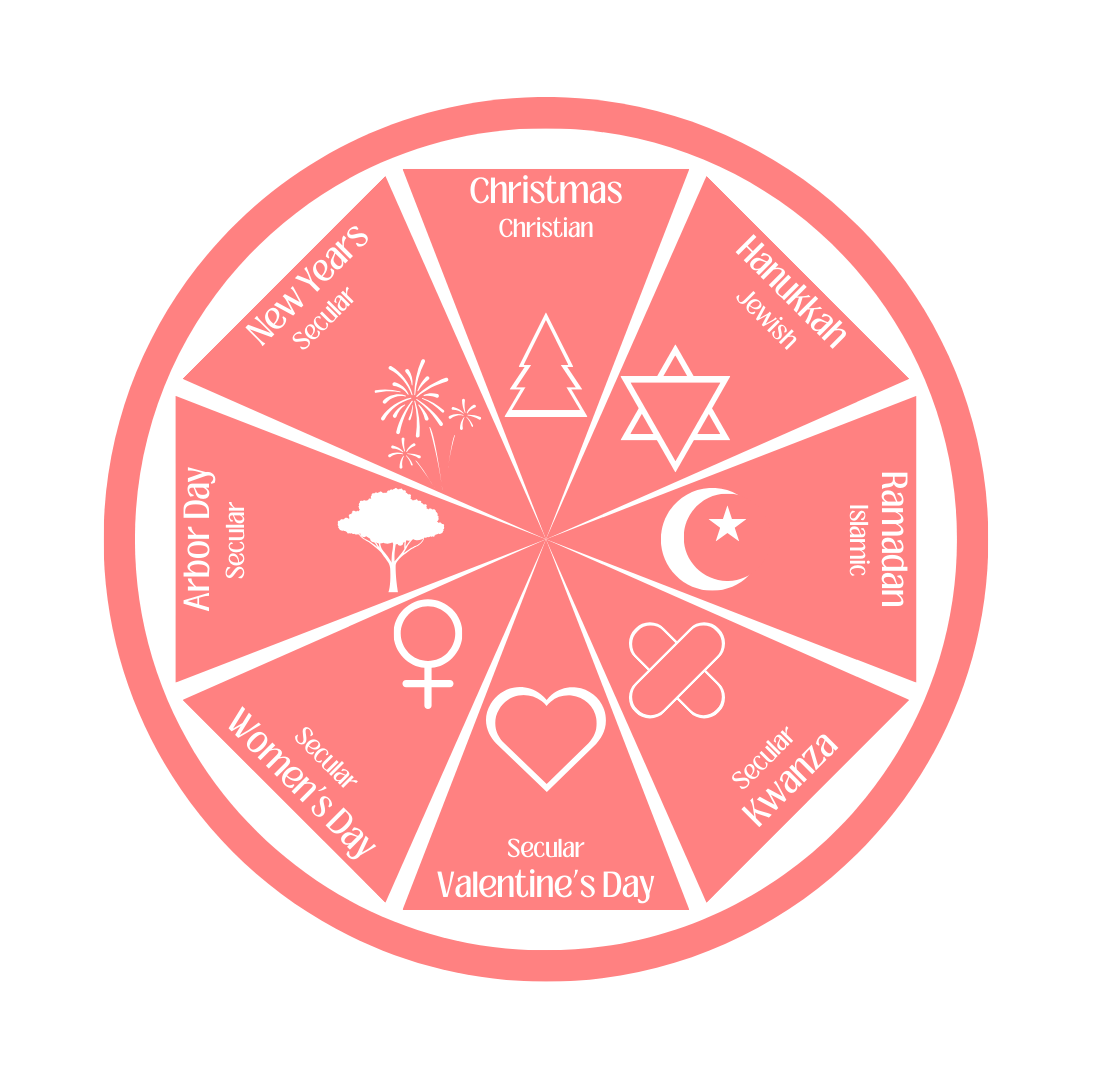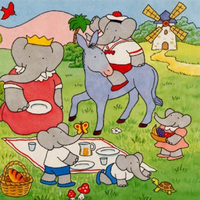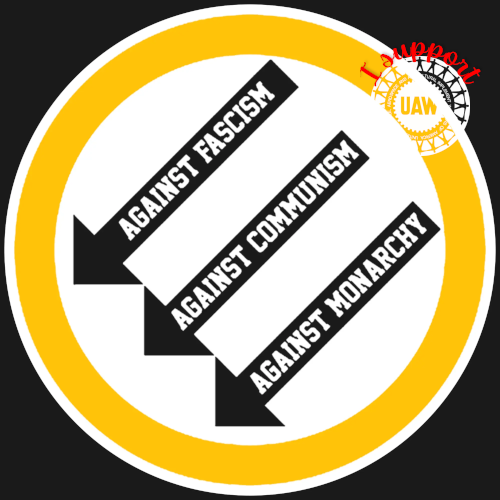Happy Holidays to you all! Get bent, FOX news. Let everyone celebrate the season. Now, I am off to prepare for Festivus at my house.
“Goodbye” exists because of 15th century chatspeak. It’s a highly abbreviated version of “God be with ye”
Oh wow!
I always assumed it was connected to the word “by” as used in “by and by”, so that it would basically mean “have a good afterwards”.
Cool stuff. Bob Dylan makes more sense to me now:
And goodbye is too good a word babe
So I’ll just say fare thee wellI ain’t sayin you did me unkind,
You could’ve done better, but I don’t mind.
You just kinda wasted my precious time
But don’t think twice, it’s alright.
Adiós
Adieu
Adeus
Auf Wiedersehen
Ah dave chappelle.
Sad that the worlds humour was faster living than himself.
That whole debate is one of the dumbest things to come out of America.
The rest of the world doesn’t worry about it, because Christmas is like 90% secular. The Christians do their thing today, and leave the rest of us to celebrate Christmas with friends and family and too many cold cuts of meat. You can say happy holidays and nobody’s gonna get upset, but even as a non-Christian I’m more likely to wish you a merry Christmas.
(The poms and their “happy Christmas” are weird though. Just sounds wrong.)
In Danish you don’t even have a way of saying “happy holidays”. It’s just “glædelig jul”.
And ‘jul’ comes from the nordic word ‘yule’ which means Christmas before religion high jacked it.
Yule is much older than Christmas, dating back to the viking age. And they have similar traditions.
FYI, the majority of Americans don’t give a shit either and think it’s embarrassingly stupid.
The whole thing is tilting at windmills. Nobody gives a shit what you say but they want to fight this supposed force out there trying to control what people say. It doesn’t exist in a way where it will ever matter.
(The poms and their “happy Christmas” are weird though. Just sounds wrong.)
As a Brit I’ve never heard happy Christmas. It’s always merry Christmas. Then it’s happy new year.
Isn’t that famous John Lennon song called, “Happy Christmas (War is Over)”?
He was a Brit if I’m not mistaken.
It’s widespread
Must be regional. Definitely not a thing in the southeast.
My dad’s from lincs my mom’s frum brum and they’ve always said it so it’s definitely midlands
It just proves you can convince conservatives to be angry and scared about literally anything.
Fyi, “happy Christmas” is just the normal phrasing in the UK. “Merry Christmas” didn’t start to spread until A Christmas Carol was published.
Will you be going on holiday?
Non native English speaker here. What’s a pom?
How dare you take jesus out of my culturally appropriated pagan celebration!
Breakfast is the first meal you eat after breaking your fast.
You mean that without sleep we would eat all the time?
I would
I frequently midnight snack. I’ll wander down and eat some cookies in the middle of the night.
Which is why, to piss of the Christians this year, we all have to say “happy solstace”
In Scandinavia we never stopped calling the holiday by it’s pagan name - jul.
We’ve been told for a thousand years now that it’s somehow supposed to refer to the birth of Christ, but the celebration is older than Christianity and nobody knows for sure the origin of it’s name. As far as me and my family is concerned, it’s a pagan holiday.
Happy to celebrate with my Christian friends though, there’s nothing wrong with being inclusive.
God jul!
Woah, I’m guessing that’s where yule as in yuletide in English comes from. A lot of Christmas traditions came out of Scandinavia so makes sense if true. Gonna look up some Jul info now.
God Jul!
Bingo!
Christmas traditions are a fun mix of things. The modern Santa Claus is mostly a mix of Saint Nicholas and a bunch of continental European traditions, but the pointy red hat is the product of being what we refer to as a nisse - a mythical creature closely related to gnomes.
We have long traditions of leaving food out for the nisse living in the barn for Christmas. And Santa is not named after Saint Nicholas over here - we call him julenissen. The Christmas gnome, if you will.
Similar thing with “Easter”, which comes from the name of Ēostre, the Germanic goddess of Spring. The origins of that holiday have nothing to do with Christianity, but the day and name were hijacked by Christians sometime in the mid-2nd century.
One origin is The Wild Hunt on the solstice. I don’t think I saw in this article, but I have seen mention of jul logs being associated with bonfires being lit on the solstice to guide Odin during the hunt.
A jul log is just a yule log then?
Jovial Saturnalia
instead of being buried under 2-3 feet of snow, it was 55 degrees (F) today, so happy global warming works too.
I like to say that and blessed yule. I figure if Christian’s get to throw a hissy fit about it being their religious holiday my pagan ass gets to wish other people to have a nice version of my religious holiday.
I thought originally it meant like Merry Christmas + Happy New Year, bc professionals might take that whole week off so like “see ya next year Bob, enjoy your holidays!” (plural)
Then some people started using it to throw in like Hanukkah, Kwanzaa, Eid al-Fitr / end of Ramadan, plus there’s Buddhist, Hindu, Hispanic / Latin American (Las Posadas), Scandinavian (Lussinatta), German (Krampusnacht), Chinese (Dongzhi Festival), and in UK/Canada/Australia/New Zealand. there’s Boxing Day afterwards, etc.
Okay so Diwali is a bit of a stretch, being more than a month earlier but it still feels like it fits:-). The rest all occur within about a month of one another, so saying “Happy Holidays” is by definition inclusive of others who may or may not share your particular religious belief structure.
Which ofc is why Faux News had to go to war against it, promoting instead the Christmasgasm that Jesus most definitely invented (/s btw bc rather, everything He ever said or did goes directly against what they are trying to claim it is all about). But fuck Fox, do what you want, and I wish you Happy Holidays (whatever form they may take for you:-).
Pancha Ganapati
There are some Christian denominations that celebrate Christmas in January.
Also for some countries, they do Christmas Day on the 24th. Poland for instance tends to have the big family get together dinner on the 24th.
But yeah, you can also have Hanukkah, Diwali, Kwanza, New Years, Eid/ end of Ramadan, you could even throw in Lunar New Year which can be early January. Also St.Stephens Day/Boxing day, Los Posadas. Even the Satanic Temple has the festival of Sol Invictus if you wanted to include that too lol.
I think nearly all European countries except the English speaking, celebrates at 24th.
In Italy we are split between terroni (24th evening celebration and 25th lunch celebration) and polentoni (25th lunch and 26 lunch)
At the end happens often that families are mixed so you do all the 3. On top of that you have friends to meet and what’s best than another lunch/dinner?
In Germany, we usually have presents on the 24th in the evening, but the big family gatherings are often on the 25th (and 26th, as you’re typically part of multiple families).
Same in Denmark, but not everyone will do a traditional thing the 25th or 26th. Most will though.
24th is very traditional.
Orthodox Christians celebrate on 7th of January
I’m in the US, and our family has always had the big get together on the 24th with extended family, then the morning of the 25th is a more personal thing where our individual families (and their children now) get together and exchange gifts.
So I don’t know if there’s any real generalization like that.
Everyone is never everyone in the real world. I do think though, that the general majority in each country does the same thing.
And what you described is not the European way but the “English” way, confirming my statement.
True. Happy holidays was accidentally inclusive, as opposed to it being designed that way. It was just used as another way to say Merry Christmas.
We also celebrate yalda night in there.
Winter solstice time tends to be culturally significant for most.
for some countries, they do Christmas Day on the 24th. Poland for instance tends to have the big family get together dinner on the 24th.
It’s the same in Denmark, I wonder if it’s a Northern European thing? I think Poland is mostly Catholic whereas Denmark is Lutheran protestant, so it’s not just denomination.
Word usage changes over time, often not retaining its original meaning, as the article points out. I find it more interesting how the European use is more broad, where Americans separate the individual recreation from work or school into the term vacation.
Some of these, especially Valentine’s day, could also be labeled “commercial” but I guess that’s the nature of capitalism to commercialize any kind of festivities.
Tbf, Valentine’s Day, Mother’s Day, and Father’s Day at least were created specifically by Hallmark to sell cards. So they were created as capitalistic commercial scams…
Valentine’s Day was originally a celebration of Saint Valentine. Like Christmas, it got rolled under the capitalist machine until the modern holiday became completely unrecognizable from its roots.
I think they’re thinking of Sweetest Day.

St. Valentine’s day did not start as a secular celebration. St. Valentine lived in what is now Turkey, he became known as the patron saint of love because he used to marry Christians in secret when it was illegal to do so under Islamic rule.
According to Wikipedia St Valentine was a bishop in modern day Italy about 300 years before Islam even formed. So while that is a nice story I don’t think it’s true.
well crap. now I wonder what story I got today confused.
But this would upend the entire war on xmas narrative.
Happy Holy Days, which encompass both liturgical seasons, Advent and Christmas for a total of 36-37 Holy Days. And is the first liturgical season of the year.
nothing is holier than my ass
Welcome: Now that you have come, I hope you are well.
LOL, and drop the war on Christmas stuff OP. That’s been played out for years, no one’s talking about it any longer. Not even Fox could keep up the stupidity.
I thought the same, that even Fox dropped it. Then my family sent me this: https://www.foxnews.com/lifestyle/navy-seal-wives-battle-woke-public-library-war-christmas-fight-kids-religious-liberty They are pissed, because they know I donate to TST. The type of Christians we were growing up has been subverted to some type of fundamentalism with Maga neo-fascism thrown in.
at least use the archive link so you don’t give them another hit on the counter http://web.archive.org/web/20231222125114/https://www.foxnews.com/lifestyle/navy-seal-wives-battle-woke-public-library-war-christmas-fight-kids-religious-liberty
Thank you for posting it. I completely forgot to grab the archive link.
To quote Red Green
We’re all in this together.
Uhh, I think you’re misinterpreting what the OP said. In the body of the post is literally “screw Fox News, let people celebrate what they want” which is the opposite of “war on Christmas”.




















